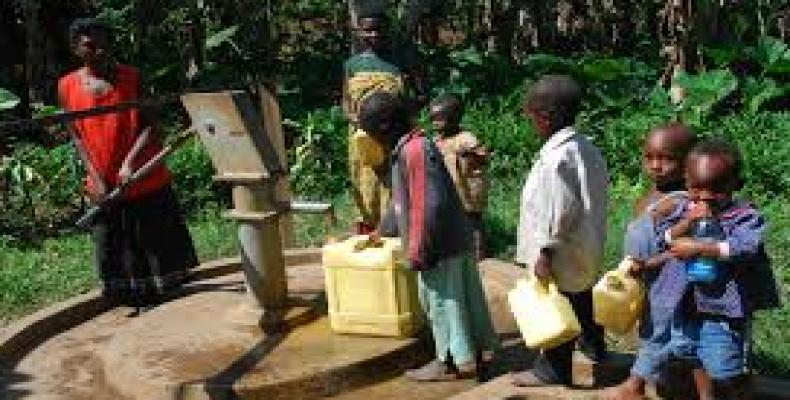According to the UN, 40% of the 783 million people living in sub-Saharan Africa are without access to an improved source of drinking water. To address this staggering figure, 15 years ago in 2000 leaders from 189 countries signed on to the Millennium Development Goals, which was a set of eight poverty-busting goals designed to significantly reduce global poverty and disease by 2015. Well, now we're in 2015. Has the foreign aid community came close to meeting those targets. More specifically, did the leaders who signed on to the Millennium Development Goals come close to meeting their goal for targeting water and sanitation needs in sub-Saharan Africa?
The answer is clearly no. To be more accurate, we have to recognize that African countries have made substantial progress in reaching some of the Millennium Development Goals. In some countries poverty has declined. In areas like education we have seen more kids going to school and staying in school. But there are areas where much less attention has been paid. Two of those are access to water and access to sanitation.
It is often overlooked that if countries and the global community are genuinely interested in fighting poverty, access to water and sanitation are vital tools. Because lack of access to water, lack of access to sanitation, inevitably lead to poor health conditions and worsens the burden on women in particular in terms of what they have to do to sustain the well being of their households.
While some African countries have made progress on the margins, in the areas of water and sanitation the overall progress has been limited.
And this can be explained by many factors. One is downright inefficiency in implementation of aid in water and sanitation projects. The second reason is that aid that is provided to a government earmarked for those sectors ends up being used for something else. And another explanation is corruption. Some of the aid which is targeted to those sectors ends up being squandered and embezzled, and converted into private use, private wealth. Aid and external borrowing financing private assets.
Let’s take Nigeria for example, a country that now has the largest economy on the African continent at about $570 billion, compared to the next biggest economy which is South Africa, at $350 billion.
If we look at the access to social services in Nigeria you find that for the rural sector only 26% of the population have access to water and sanitation. This is abysmally low compared to South Africa, which is about 60%.
Basically Nigeria, despite its wealth, is punching below its weight in terms of provision of social services to its population. It could be that government resources are not being effectively nor efficiently used due to technical inefficiencies, where money does not reach the project that it was earmarked for. It could also be corruption.
So what should a sub-Saharan country like Nigeria do, aside from advocating for more aid to be channeled to the water and sanitation sector.
Well, here’s one answer and it does not only apply to Nigeria. They should be mobilizing more domestic resources, more tax revenues. If you look at tax to GDP in Nigeria, it's less than the tax to GDP ratio in Rwanda. Why should that be? Rwanda is a much less developed low-income country. But that shows that efficiency in tax mobilization is better in Rwanda than in Nigeria and there is no reason for that. Nigeria has a very well-educated population. Technical capacity in the government is sufficient. So it's only political will and corruption that's really holding the country back.
The way you resolve that is to increase transparency in the way government resources are managed. Civil society and operations should have an opportunity to participate in the budgeting, procurement, and monitoring processes of government budgets and government projects.
Where the money is coming from has to be transparent. What you find is that in many cases when this procurement is not transparent then you end up with inflated costs and money leaking out of the government sources.
And you end up with more people without clean water and basic sanitation.


